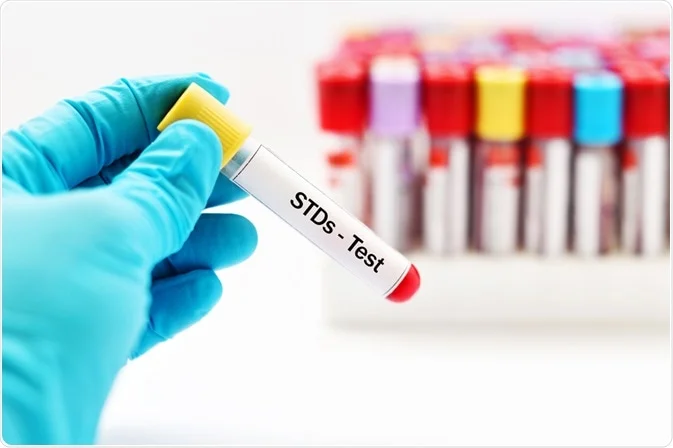STD Myths on TikTok and Instagram: Debunking Dangerous Viral Health Advice
In the age of social media, health information is just a click away. However, the vast number of health-related posts on platforms like TikTok and Instagram often leads to confusion, misinformation, and dangerous misconceptions. One of the most concerning topics being misrepresented is sexually transmitted diseases (STDs). Social media influencers, everyday users, and even health enthusiasts are sharing harmful myths about STDs that can result in long-term health consequences for individuals who believe them. At Hope Across The Globe, we think it’s crucial to address these myths head-on and provide the correct information. Through this blog post, we will tackle some of the most common STD myths circulating on social media, explain why they are false, and help you make informed decisions when it comes to your health. Let’s clear the air and set the record straight.
The Spread of STD Myths: Why It Happens
With millions of users engaging on social media platforms like TikTok and Instagram, it’s no surprise that myths related to health—especially STDs—spread quickly. These platforms are often filled with videos, memes, and posts that may not always be fact-checked or backed by experts. Here’s why the misinformation is spreading:
- Lack of Expertise: Many TikTok videos and Instagram posts are created by people who don’t have any medical background. They share personal opinions or experiences, which can be mistaken for credible advice.
- Viral Content: Content that is exaggerated or sensational tends to go viral. This is particularly true when it comes to topics related to health and wellness. People are more likely to click on a post that claims to reveal shocking or unusual information, even if it’s false.
- Misunderstanding Medical Terminology: Health-related terms, especially in the context of STDs, can be confusing. Misinformation spreads when people misunderstand medical terms or misinterpret the advice they receive from unqualified sources.
The dangerous part is that false information can lead to risky behaviors and attitudes, such as not getting tested for STDs, assuming one is immune, or failing to take proper precautions during sexual activity.
Also Learn About: The Role of Meditation and Stress Management in STD Management
Common STD Myths on TikTok and Instagram
Social media platforms have a way of amplifying misinformation. Here are some of the most common STD myths that have gained traction online, along with explanations of why they are false.
Myth 1: “You Can Tell If Someone Has an STD Just by Looking at Them”
One of the most dangerous myths about STDs is the belief that you can tell if someone has an STD simply by looking at them. While some STDs, like genital warts or herpes, may have visible symptoms, many STDs do not. People infected with HIV, chlamydia, gonorrhea, or syphilis, for instance, can show no symptoms at all, which is why these diseases are often referred to as “silent infections.”
Why It’s Dangerous: This myth encourages individuals to overlook proper precautions like condom use and regular testing. Just because someone doesn’t appear to have any signs of an STD doesn’t mean they are not infected.
Myth 2: “You Can Get an STD from a Toilet Seat”
Another common myth that circulates on platforms like Instagram and TikTok is the idea that you can catch an STD from a toilet seat. This idea has been around for decades and is often perpetuated by those who fear contracting diseases in public restrooms.
Why It’s Dangerous: STDs, like chlamydia, gonorrhea, and syphilis, cannot survive on surfaces like toilet seats. They require direct contact with infected bodily fluids to spread. Believing this myth could prevent people from seeking proper treatment or practicing safe sexual habits, as they mistakenly think they are at risk in everyday places.
Myth 3: “If You’re on Birth Control, You’re Protected from STDs”
While birth control is effective at preventing pregnancy, it does not protect against STDs. Many people assume that taking birth control pills is a form of protection against sexually transmitted infections, but this is not the case.
Why It’s Dangerous: This myth may encourage individuals to engage in unprotected sex, believing that they are safe from both pregnancy and STDs. The truth is, you still need to use condoms or other forms of barrier protection to guard against STDs like chlamydia, gonorrhea, or HIV.
Myth 4: “You Only Need to Get Tested if You Have Symptoms”
Many social media posts make it sound like testing for STDs is only necessary if you show symptoms. While it’s true that some STDs have obvious symptoms, others can be asymptomatic, meaning you may not know you’re infected until the disease has caused long-term damage.
Why It’s Dangerous: Not getting tested regularly, especially if you have multiple sexual partners or do not use protection consistently, puts you at risk of unknowingly transmitting or contracting an STD. It’s crucial to get regular screenings, even if you feel fine.
Learn About: Why Are STD Rates Rising Among Seniors?
How to Protect Yourself from STD Myths
So, what can you do to protect yourself from the dangerous myths about STDs spreading on TikTok and Instagram? Here are some important steps to ensure you’re getting the facts straight:
1. Consult Medical Professionals
When in doubt about STD information, always seek advice from a licensed healthcare provider. Whether it’s your primary doctor or a local STD clinic, the professionals at STD Clinics in Jacksonville can provide accurate and reliable guidance.
Why It’s Important: Medical professionals have the training and knowledge to help you understand the facts. They can explain how STDs are transmitted, what symptoms to look out for, and when you should get tested.
2. Use Reliable Health Resources
Look for health information from credible sources such as the Centers for Disease Control and Prevention (CDC), World Health Organization (WHO), or local public health departments. These organizations provide fact-checked information and are trusted by experts in the field.
Why It’s Important: These organizations offer evidence-based information on STDs, treatment options, and prevention methods. Following advice from these sources will ensure you’re getting the right information.
3. Get Regular Screenings
Even if you don’t think you’re at risk, getting regular screenings is a proactive step you can take to protect yourself and your partners. STD clinics, like those in Jacksonville, offer confidential and affordable testing. Early detection can prevent complications down the line and ensure you are staying healthy.
Why It’s Important: Regular screenings help you stay on top of your sexual health, especially since many STDs don’t show symptoms immediately.
4. Use Condoms and Barrier Methods
Always use condoms or other barrier methods during sexual activity. Condoms are the most effective way to prevent the transmission of most STDs, including HIV, gonorrhea, and chlamydia.
Why It’s Important: Barrier methods reduce the risk of transmission significantly, ensuring you and your partner are both protected during sex.
The Role of Hope Across The Globe in Combating STD Myths
Hope Across The Globe is committed to promoting sexual health education and combating the spread of dangerous myths on social media. By offering resources, support, and guidance, we aim to provide individuals with the correct information they need to protect themselves and their partners.
We work closely with local STD clinics in Jacksonville to ensure that individuals have access to the necessary screenings and treatments. Through educational campaigns and partnerships with health professionals, we strive to create a community that is informed, safe, and healthy.
Conclusion: Staying Informed and Safe
Social media platforms like TikTok and Instagram have created a new way for people to connect and share information, but they’ve also contributed to the spread of dangerous health myths. It’s crucial to approach viral health advice with skepticism, especially when it comes to serious topics like STDs.
By debunking these myths and following safe practices such as regular testing, condom use, and consulting with medical professionals, you can protect your health and ensure that you’re not falling victim to harmful misinformation. If you need guidance or services, don’t hesitate to reach out to trusted STD clinics in Jacksonville or organizations like Hope Across The Globe, which are dedicated to your well-being. Stay informed, stay safe, and take control of your health today.
Related Tag: Free STD Testing Jacksonville






